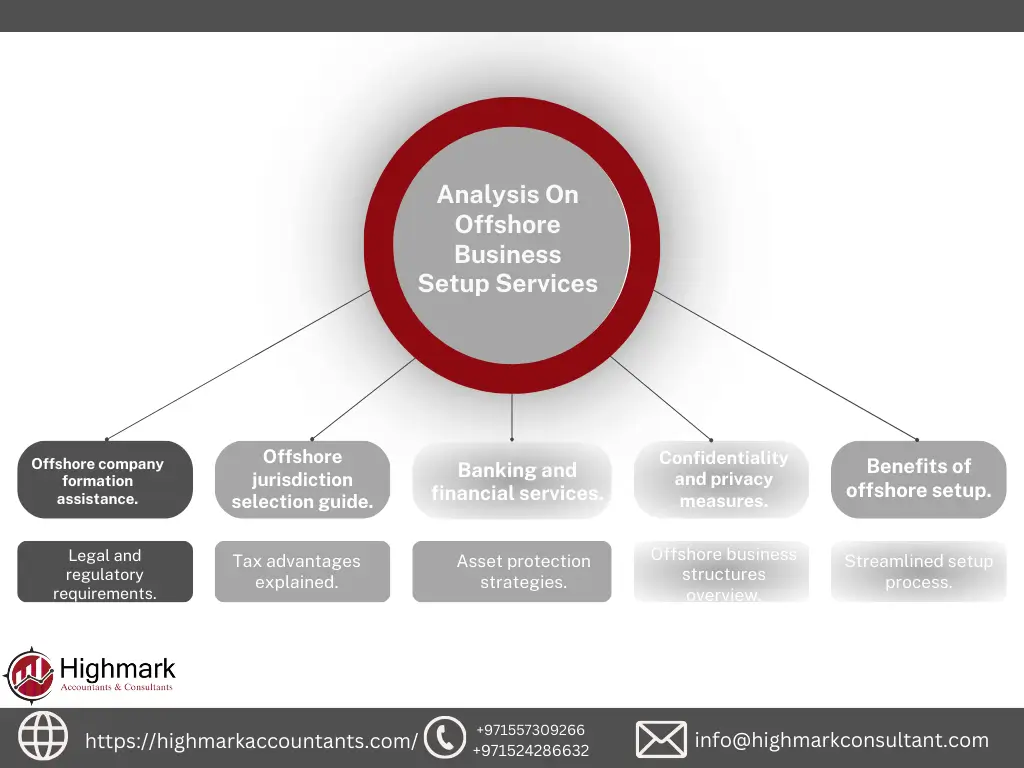Why Offshore Company Formations Are Essential for Global Wealth Structuring
Demystifying Offshore Company Formations: How They Run and What to Expect
Offshore firm formations can appear complex and enigmatic. Offshore Company Formations. These entities, usually developed for tax obligation advantages and privacy, run under unique lawful frameworks. Entrepreneurs might find themselves steering via a maze of regulations and conformity demands. Comprehending the complexities is crucial for success. What are the actual benefits? What are the potential pitfalls? A closer evaluation discloses the subtleties that can impact decision-making considerably
Understanding Offshore Companies: Types and interpretations
Offshore firms are entities established in a territory beyond an individual's or service's primary country of house, often for objectives related to tax optimization, possession defense, or regulative benefits. These companies can take different types, consisting of restricted obligation companies (LLCs), global company firms (IBCs), and offshore counts on. Each kind serves specific functions and interest various requirements.
Restricted responsibility business offer proprietors with defense from individual responsibility, while worldwide company firms are popular for their flexibility and very little coverage needs. Offshore depends on, on the other hand, are made use of primarily for estate planning and property protection.
The choice of territory considerably influences the business's operations, as some places offer more desirable lawful structures and privacy defenses. Offshore Company Formations. Recognizing the distinctions between these types is important for companies and people thinking about offshore structures, as each option carries different implications for governance and conformity
The Benefits of Developing an Offshore Company
Developing an offshore firm can supply many benefits, particularly for those looking for to enhance their economic approaches and shield their properties. One significant advantage is tax optimization; lots of territories supply beneficial tax obligation rates or exceptions, enabling organizations to maintain more profits. In addition, overseas business can provide a layer of personal privacy, shielding the identifications of proprietors and investors from public analysis.
Another advantage is possession protection. By positioning possessions in an overseas entity, individuals can protect their wide range from possible legal cases or political instability in their home nations. This structure also facilitates international company procedures, making it possible for much easier access to varied customers and international markets.
In addition, the facility of an offshore company can improve credibility and stature, appealing to clients that value worldwide business practices. On the whole, these advantages make offshore company formations an eye-catching choice for companies and individuals going for financial development and safety and security.
Secret Factors To Consider Before Forming an Offshore Entity
Prior to forming an overseas entity, several important aspects need to be analyzed. Legal conformity needs, tax obligation effects and benefits, in addition to territory selection, play a considerable duty in the decision-making process. Understanding these factors to consider can aid companies and individuals navigate the intricacies of offshore company formations properly.

Legal Conformity Requirements
When taking into consideration the development of an overseas entity, comprehending lawful conformity demands is important to assure adherence to both worldwide and regional regulations. Possible local business owner have to familiarize themselves with policies controling company registration, reporting obligations, and operational criteria in the chosen territory. This consists of confirming the lawful requirements for shareholders and supervisors, along with making certain conformity with anti-money laundering (AML) and know-your-customer (KYC) regulations. Furthermore, businesses need to stay familiar with any kind of licensing needs details to their sector. Involving regional legal and economists can give important understandings, guaranteeing that all essential documents is prepared and sent properly. Ultimately, extensive knowledge of lawful conformity aids mitigate dangers and promotes a sustainable offshore operation.
Tax Ramifications and Advantages
Numerous company owner take into consideration the tax effects and advantages of creating an offshore entity as an important aspect in their decision-making process. Offshore companies can supply substantial tax advantages, such as minimized corporate tax rates, exception from specific regional taxes, and the capacity to defer taxes on international earnings. These advantages can cause improved earnings and cash flow, making overseas structures appealing for global company operations. Additionally, the capacity for tax obligation treaties might even more decrease tax liabilities. However, it is necessary for entrepreneur to comprehend the complexities entailed, including conformity with both local and international tax obligation policies. Engaging with tax professionals is recommended to navigate these ins and outs effectively and ensure excellent tax obligation preparation techniques.
Jurisdiction Option Aspects
What elements should one consider when choosing a jurisdiction for overseas company formation? Trick factors to consider include tax obligation effectiveness, regulatory atmosphere, and political stability. Territories with positive tax regimes can significantly affect success. The governing landscape must offer versatility and convenience of compliance, permitting effective organization operations. Political security is vital, as it assures the security of properties and continuity of operations. Furthermore, the online reputation of the territory can impact client trust fund and business connections. Accessibility to banking solutions and the schedule of expert assistance solutions are likewise crucial. Lastly, understanding neighborhood laws concerning ownership, reporting, and privacy requirements is vital to determine that the overseas entity straightens with the organization proprietor's goals and legal commitments.
The Refine of Establishing an Offshore Company
Establishing up an overseas firm entails a collection of critical actions that require careful preparation and conformity with worldwide policies. At first, an individual must pick an appropriate jurisdiction that lines up with their service purposes and provides desirable tax benefits. Following territory choice, the following step is to choose an unique business name and prepare the necessary documents, including posts of incorporation and investor agreements.
As soon as the paperwork prepares, it needs to be sent to the pertinent authorities along with the needed charges. After authorization, the business will certainly receive a certification of incorporation, formally developing its legal presence. The individual have to after that open a company checking account to assist in monetary deals.
Finally, maintaining an overseas company includes sticking to ongoing conformity demands, such as annual coverage and tax obligations, which differ by jurisdiction. Understanding each step is important for a successful offshore company development.

Regulative and lawful Framework for Offshore Companies
While establishing an offshore company can offer substantial benefits, it is necessary to maneuver via the complex lawful and governing structure that controls such entities. Each jurisdiction has its own set of laws that determine every little thing from firm development to taxes and conformity needs. These guidelines are created to visit stop unlawful activities, such as cash laundering and tax evasion, and frequently require thorough paperwork and transparency.
Crucial element of this structure consist of the necessity of selecting local supervisors, keeping a licensed office, and adhering to annual coverage responsibilities. Additionally, several jurisdictions enforce certain licensing demands for certain organization activities. Understanding these legal terms is important for making sure compliance and mitigating threats related to charges or legal conflicts. Consequently, engaging with attorneys who focus on offshore firms can aid in steering with this intricate landscape, inevitably facilitating a successful and certified overseas company procedure.
Typical False Impressions About Offshore Companies
Lots of people hold mistaken beliefs concerning offshore business, usually corresponding them with tax obligation evasion and illegal activities. Nonetheless, it is crucial to identify that these entities can run legally within a framework created for genuine business methods. Clarifying the legal status of offshore companies can assist dispel these myths and advertise an extra exact understanding of their objective.
Tax Obligation Evasion Misconceptions
Despite the expanding appeal of overseas firms, mistaken beliefs concerning their use for tax evasion linger. Lots of individuals mistakenly believe that establishing an overseas entity is exclusively a way to prevent taxes. Offshore firms are typically utilized for legitimate functions, such as asset protection, global service growth, and investment diversification. The assumption that all overseas activities equate to immoral tax evasion overlooks the complexities of international tax regulations and conformity needs. In addition, the huge bulk of offshore jurisdictions have actually applied procedures to battle tax obligation evasion, promoting openness and details exchange. This mischaracterization can deter reputable companies and financiers from checking out the potential benefits of offshore business formations while click for more perpetuating an adverse preconception bordering these entities.
Legal Standing Clarified
The legal status of overseas business is typically misinterpreted, bring about a range of misunderstandings. Several believe these entities operate in a legal grey location, presuming they are dishonest or naturally prohibited. In fact, overseas business are legitimate businesses developed under the laws of certain territories, made for numerous reasons, including asset security and market development. Another typical false impression is that offshore business avert tax obligations entirely; however, they undergo the regulations and tax responsibilities of their home countries. Additionally, some individuals assume that overseas business can be quickly exploited for money laundering or illegal activities. While abuse can take place, most jurisdictions impose stringent compliance and transparency legislations to alleviate such dangers, making sure that offshore companies operate within legal structures.

Handling and Running Your Offshore Company Efficiently
Properly managing and running an overseas company needs a critical technique that balances compliance with regional laws and the quest of service objectives. Effective offshore administration entails understanding the jurisdiction's tax obligation legislations, reporting needs, and functional guidelines. Using regional specialists, such as accounting professionals and lawful advisors, can supply vital insights into passing through these intricacies.
In addition, establishing clear interaction networks and operational methods is crucial for preserving effectiveness. Using technology for project monitoring and collaboration can enhance productivity, while regular performance examines warranty alignment with critical purposes.
Furthermore, maintaining robust economic documents is essential, as openness cultivates trust fund with stakeholders and abide by worldwide requirements. Finally, being adaptable to adjustments in regulations or market conditions allows overseas firms to pivot successfully, assuring lasting sustainability and growth. By address sticking to these principles, local business owner can make the most of the advantages of their overseas ventures while mitigating dangers.
Frequently Asked Inquiries
Exactly how Much Does It Cost to Preserve an Offshore Company Each Year?
The expense to keep an offshore firm yearly differs significantly, typically varying from $1,000 to $5,000, depending upon jurisdiction, services called for, and compliance obligations. It is important to consider extra fees for specific needs.
Can I Open a Checking Account for My Offshore Firm Remotely?
Opening a bank account for an offshore company from another location is typically possible. Requirements may vary by territory, usually necessitating documentation and verification procedures, which can make complex the remote application experience for individuals.
Exist Details Countries Known for Easier Offshore Company Formations?
Certain countries, such as Belize, Seychelles, and the British Virgin Islands, are renowned for their desirable guidelines and streamlined processes pertaining to overseas business developments, drawing in business owners looking for effectiveness and privacy in business operations.
What Kinds of Companies Are Finest Matched for Offshore Business?
Particular businesses, such as e-commerce, consultancy, and financial investment firms, frequently take advantage of overseas business as a result of tax obligation advantages, privacy, and governing versatility - Offshore Company Formations. These entities commonly thrive in jurisdictions that promote beneficial company environments
Exactly How Can I Guarantee Conformity With Local Regulations When Running Offshore?
To guarantee conformity with neighborhood laws when running offshore, it is essential to involve legal experts, carry out extensive study on territory laws, and preserve transparent economic records, therefore reducing risks related to non-compliance.
